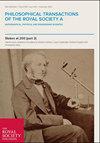基于最小控制综合算法的振动台自适应控制
Philosophical Transactions of the Royal Society of London. Series A, Mathematical and Physical Sciences
Pub Date : 2001-09-15
DOI:10.1098/rsta.2001.0862
引用次数: 100
摘要
传统的振动台测试受到传统固定增益控制算法有效性的限制。这些算法通常基于振动台和试件的线性模型,其参数在试验期间是固定的。尽管试样对整个系统动力学的影响可以通过微调线性控制器部分消除,但该过程不能处理非线性效应,并且受操作人员专业知识的限制。最小控制综合(MCS)算法是自适应控制的一种形式,最初被成功地用于处理机器人领域的非线性问题。MCS算法可以在不了解被控系统参数的情况下实时调整控制器。本文描述了MCS如何被整合到振动台的模拟和数字控制器中,并展示了布里斯托尔大学和雅典技术大学在振动台上取得的一些结果。在这两种情况下,自适应控制的引入都明显改善了振动台的性能,在一些实验中校正误差超过5db。本文章由计算机程序翻译,如有差异,请以英文原文为准。
Adaptive control of shaking tables using the minimal control synthesis algorithm
Traditional shaking–table testing has been limited by the effectiveness of conventional fixed–gain algorithms used in their control. These algorithms are normally based on linear models of the shaking table and specimen, whose parameters are assumed to be fixed for the duration of the test. Although the influence of the specimen in the overall system dynamics can be partly removed by fine–tuning the linear controller, this process cannot deal with nonlinear effects and is limited in scope by the expertise of the operator. The minimal control synthesis (MCS) algorithm is a form of adaptive control, which was originally and successfully employed to cope with the nonlinear problems in the field of robotics. The MCS algorithm can tune the controller in real–time without any parametric knowledge of the system to be controlled. This paper describes how MCS has been incorporated within both analog and digital controllers for shaking tables and shows some of the results achieved on tables at the University of Bristol and at Athens Technical University. In both cases, the introduction of adaptive control has noticeably improved the performance of the shaking table, correcting errors by more than 5 dB in some experiments.
求助全文
通过发布文献求助,成功后即可免费获取论文全文。
去求助
来源期刊
自引率
0.00%
发文量
0

 求助内容:
求助内容: 应助结果提醒方式:
应助结果提醒方式:


